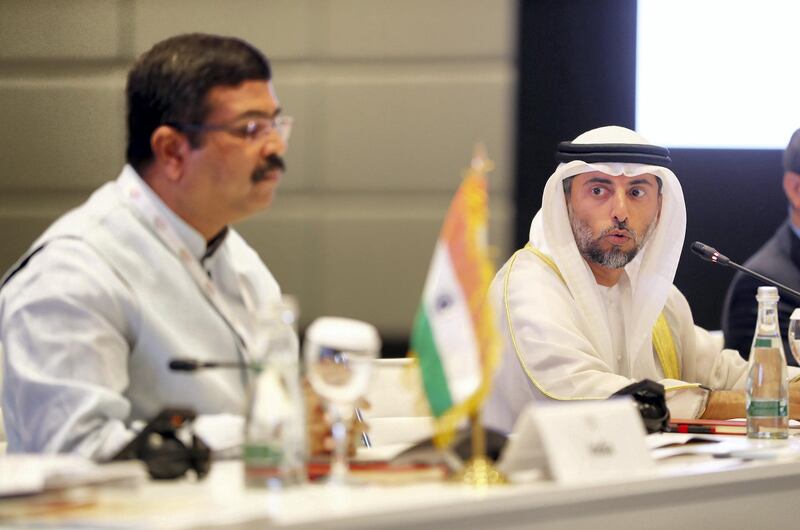The planned greenfield refinery to be developed by Saudi Aramco and Abu Dhabi National Oil Company (Adnoc) on India’s western coast could cost more than $44 billion (Dh161.6bn), according to the country’s petroleum minister.
“Capacity would be 60 million metric tonnes and that would be in phases and would focus on petrochemicals. [The] cost of the project was $44 billion, now it will be more than that,” Dharmendra Pradhan told reporters in Abu Dhabi, without specifying the new projected cost.
The planned 1.2 million barrel per day scheme is being jointly developed by national oil companies of the UAE and Saudi Arabia, alongside domestic refiners Indian Oil Corporation, Bharat Petroleum and Hindustan Petroleum. The Gulf firms will have a 50 per cent stake in the Ratnagiri project, which is expected to have a chemicals capacity of 18 million tonnes annually.
India, Asia's third-largest economy, accounted for 5.8 per cent of global consumption of oil in 2018, third only behind China and the US. While demand for crude has been slowing globally, India has been one of the few hotspots, with demand expected to grow by more than 4 per cent annually to 2030, according to Indian refiner Nayara Energy. Indian refining capacity is also expected to face a shortage of around 3.5-4 million bpd in the future, according to consultancy Wood Mackenzie, with India’s state-backed refiners tasked to bridge the gap by courting billions of dollars of foreign investment.
India, whose socialist system had long excluded large-scale foreign investment in key industrial sectors such as petrochemicals and coal, has now begun opening them up to foreign capital.
Last month, Reliance Industries, India’s largest privately-held refiner, said it had signed a letter of intent with Saudi Aramco to sell a 20 per cent stake in its oil-to-chemicals business. The Saudi state producer is expected to pay as much as $15bn in what is India’s largest ever foreign investment, which will also include the world’s largest refinery, the 1.24 million bpd capacity Jamnagar facility in the western Gujarat state.
Mr Pradhan said he expected the foreign direct investment momentum to continue.
"India is going to continue to grow in a big way in the next two decades. All the major energy players including those in renewables are eyeing [the] Indian market,” he said.
India has also begun opening up its lucrative fuel retail market, with oil major BP signing a partnership with Reliance last month to penetrate this sector.
Land acquisition for the Ratnagiri project — a sticking point for large, multibillion dollar foreign investments — in India is “currently on”, said Mr Pradhan.
India has a complex legal process relating to acquisition of private land for industrial development, with disputes sometimes taking years to resolve.







